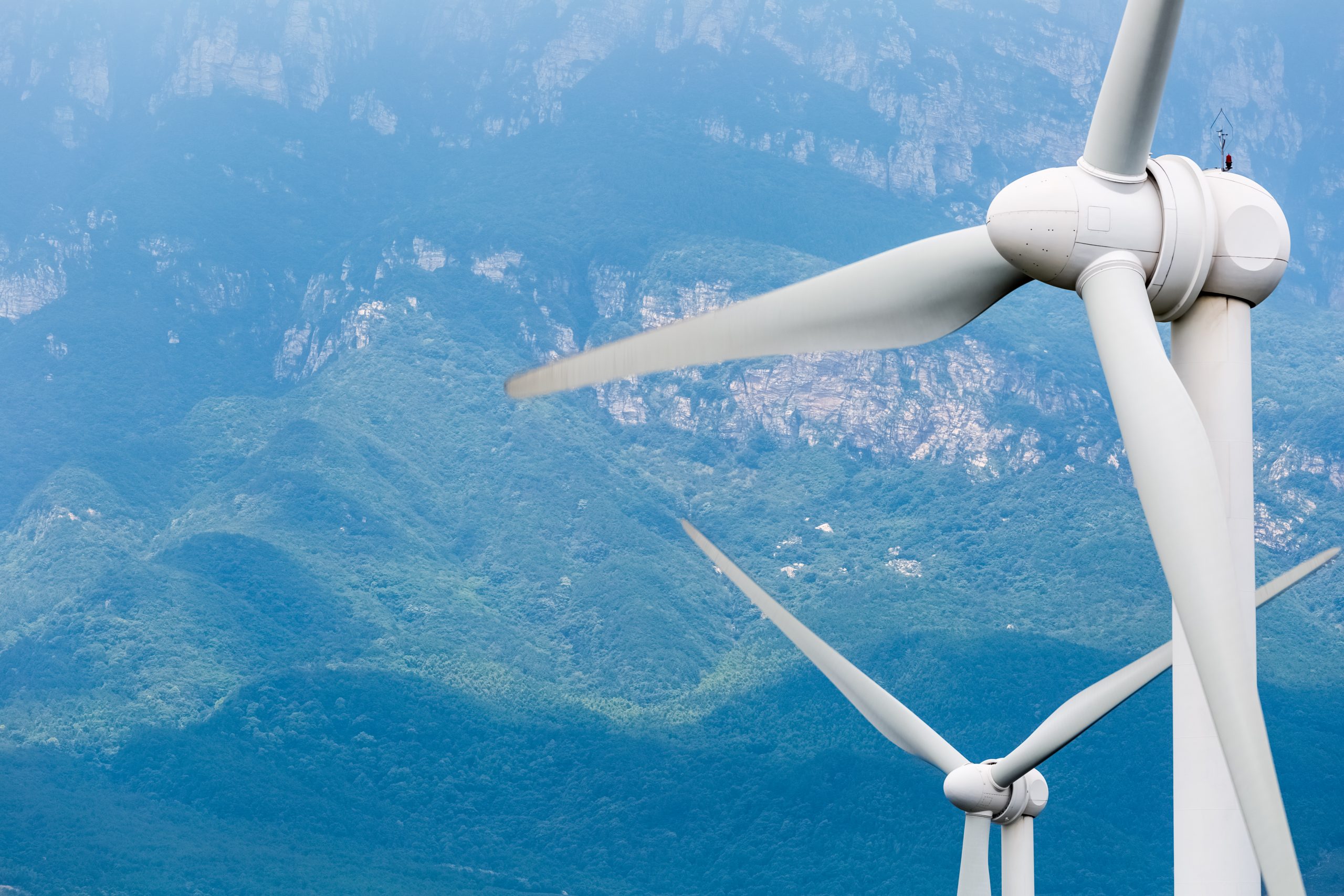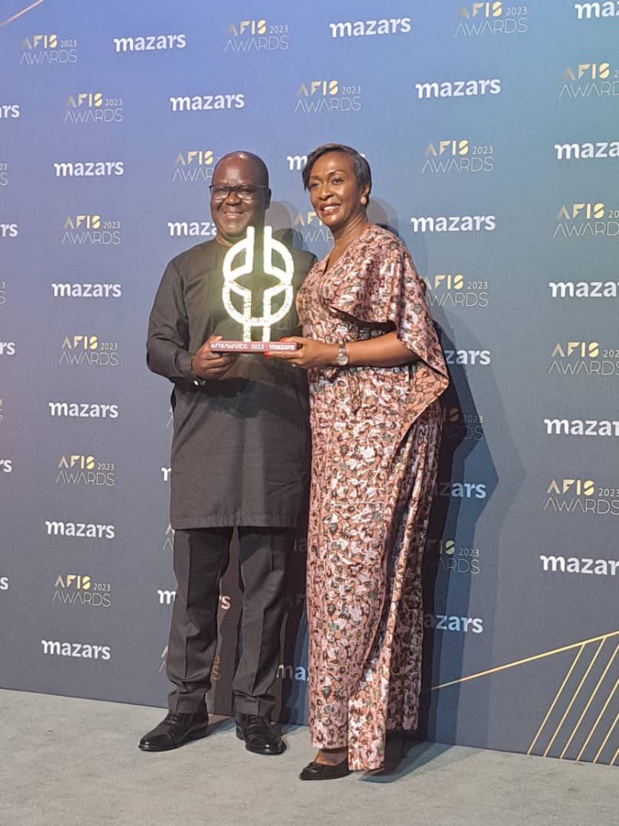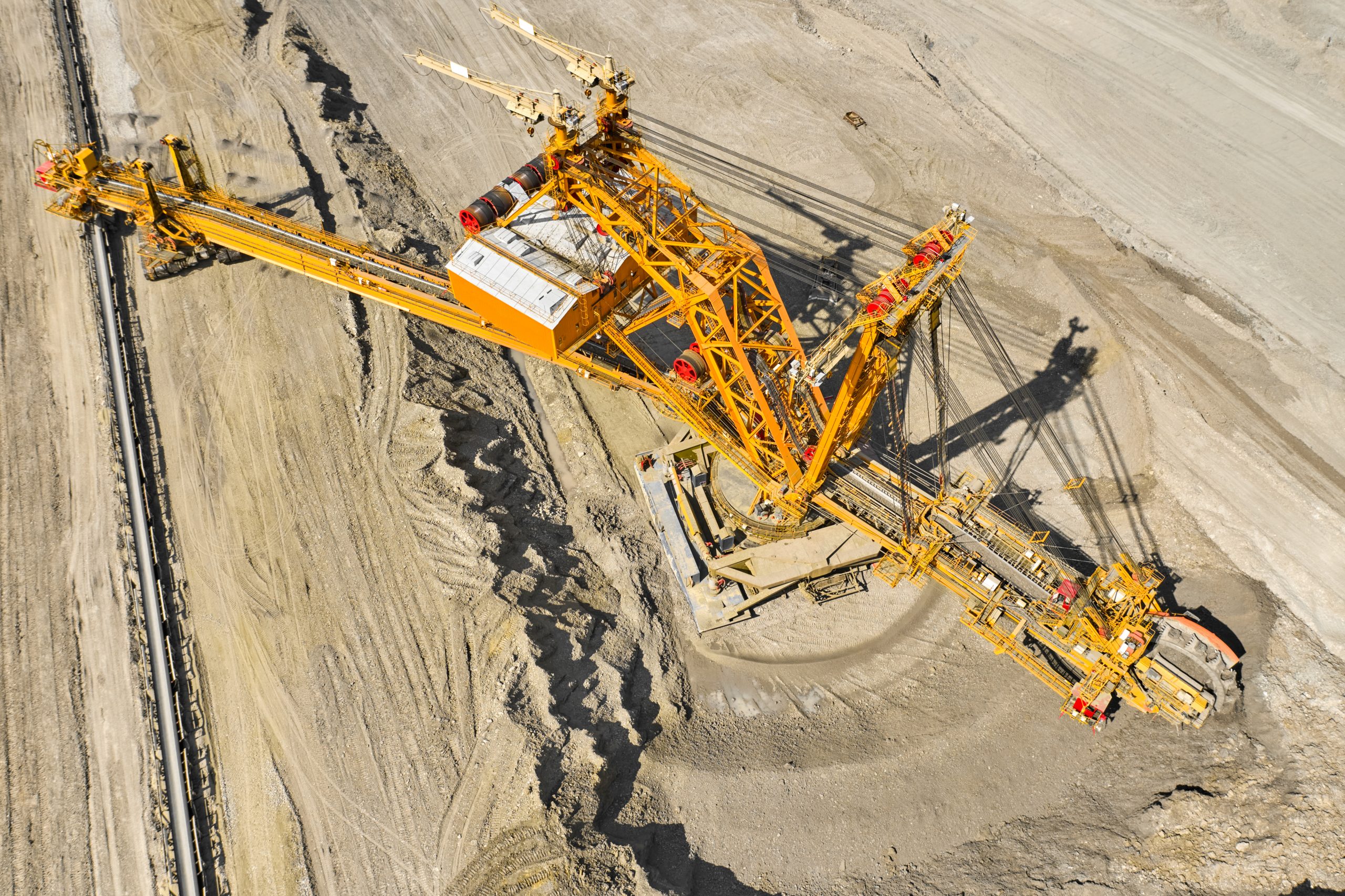BUSINESS
DJBOUTI – The country inaugurates its first wind farm

Red Sea Power (RSP) wind farm near Ghoubet Bay will provide 60 Megawatts of clean energy, increasing overall capacity by 50% and avoiding 252,500 tonnes of CO² emissions annually.
The 60 MW plant increases the energy capacity by 50% and avoids the emission of 252,500 tonnes of CO2. An additional capacity of 45 MW is planned by the investment partners AFC. In support of the UN SDGs, the facility is synonymous with energy security and independence, import substitution, industrialization, job creation and economic stability. President Ismaïl Omar Guelleh will proceed on Sunday, September 10, 2023 to the historic inauguration of Djibouti’s first wind farm, Thus embodying its announced ambition to make the country the first in Africa to rely exclusively on renewable sources for its electricity by 2035.
The Red Sea Power (RSP) wind farm near Ghoubet Bay will provide 60 megawatts of clean energy, increasing overall capacity by 50% and avoiding 252,500 tonnes of CO2 emissions annually, the equivalent of more than 55,000 buses. The project, the first major international energy investment in Djibouti worth USD 122 million, creates the country’s first independent power producer (IPP) and will serve as a model for future private investment.
An additional 45 MW of renewable energy capacity is already expected by the investor consortium led by RSP and composed of infrastructure solutions provider Africa Finance Corporation (AFC) as lead developer; the Dutch Entrepreneurial Development Bank FMO; the Climate Fund Managers (CFM) mixed finance fund manager; and Great Horn Investment Holding (GHIH), an investment company owned by a unit of
the Authority of Ports and Free Zones of Djibouti and the Sovereign Fund of Djibouti.
Until today, Djibouti relied entirely on imported fossil fuel-based electricity, as well as hydrogen-fired electricity from neighbouring Ethiopia. Less than half of the 123 MW of installed national capacity is operational due to the age of diesel power plants.
The new wind power plant will boost industrialization, job creation and economic stability as Djibouti seeks to leverage its strategic position as a global transshipment hub.
With its vast coastline and strategically positioned port facilities along the Red Sea and Gulf of Aden, Djibouti has a central role to play in the global energy market. The country has enough wind, solar and geothermal resources to triple its current capacity and exceed 300 MW. The country also hosts the world’s highest concentration of foreign military bases due to its location at the entrance to the Bab el-Mandab Strait, the corridor used by 30% of world trade. Djibouti’s new wind farm provides an opportunity for these and other businesses currently off-grid to decarbonize and replace their electricity produced mainly by diesel by clean energy.
Leveraging its seaports to diversify the economy, Djibouti set out to build an industrial zone in 2017, sparking preliminary discussions on energy capacity building. The wind farm consortium was established in 2018 and subsequently provided a bridge equity loan through AFC, FMO, CFM’s Climate Investor One Fund, and GHIH, which enabled the project to close its financing in record time (22 months). Work began in January 2020 and has continued at a steady pace despite the global supply challenges caused by the lockdowns of the Covid period.
The wind farm covers 387 hectares, the equivalent of more than 700 football fields. The 17 Siemens turbines of the site each produce 3.4 MW, served by a 220 substation megavolts amperes (MVA) and connected by an overhead transmission line of 5km to local system operator and storage facilities.
The electricity produced will be sold as part of a long-term electricity purchase agreement with Electricité de Djibouti (EDD), the national public company. Using the project as a model for future PPIs, the Government of Djibouti is already working on several other plants to increase geothermal and solar capacity.
The project is the very illustration of the use of innovative equity financing to accelerate the impact of development through risk reduction, while highlighting the commercial viability of transformation projects in Africa, by pooling various sources of capital and allowing the reproduction of similar projects at reduced financing costs.
Samaila Zubairu, President and CEO of Africa Finance Corporation: “We congratulate President Ismaïl Omar Guelleh and the people of Djibouti and our partners on this important step towards improving access to energy in Djibouti through renewable wind energy. The equity bridge loan solution we deployed mitigated construction and completion risks, demonstrating clear solution-oriented AFC capabilities, reduction of
risk and execution, and the introduction of a pragmatic method for Accelerate the financial close of projects in Africa.”
“Djibouti has abundant renewable resources for sustainable and clean energy production,” said Aboubaker Omar Hadi, President of Great Horn Investment Holding (GHIH). “ “Our goal is to be the first country in Africa to use 100% green energy by 2035. Investing in renewable energy infrastructure is key to our ambitions, and the inauguration of the groundbreaking Red Sea Power wind farm is an important milestone. A reliable and cost-effective energy solution is essential to stimulate the growth of Djibouti. With the development of industrial free zone projects, we estimate that the country should face a demand of 3,700 MW over of the next decade. Harnessing renewable resources such as solar, geothermal, wind and tidal power is essential to meeting this demand.”
“Today’s inauguration marks a leap forward to close the energy gap and ensure Djibouti’s energy sovereignty by supporting the country’s long-term socio-economic development,” said Michael Jongeneel, CEO of FMO. “
In addition to the socio-economic impacts of the project, innovation in the transactional structure itself, has the potential to create systemic benefits by encouraging investment in the region. The transactional structure has significantly reduces the risk associated with the investment. The ESD payment under the Power Purchase Agreement (PPA) are backed by a government guarantee, and the government’s obligations are theirs tour supported by political risk coverage provided by the Agency World Bank Multilateral Investment Guarantee (MIGA).
“This speaks to the benefits of blended finance,” said Andrew Johnstone, CEO of Climate Fund Managers. “ “Ground-breaking operations like this one are extremely difficult to finance through traditional project financing as this area remained unexplored and therefore there is no precedent, making it almost impossible for lenders and equity partners to assume such risk. Blended financing combines both capital
concessional and commercial, allowing investors to assume a share higher risk and providing a single source of development to exploitation. In this case, we believe that the project would simply not have been possible without a mixed approach.”
François Maze, CEO of Red Sea Power: “Access to electricity is essential for business growth, job creation, education, health care, social services and infrastructure. In a country currently fully serviced by fossil fuel and electricity imports, large-scale renewable energy solutions are urgently needed to increase resilience to climate change. Today’s inauguration is an important step in Djibouti’s goal of relying exclusively on renewable energy sources by 2035. We are proud to participate in this transition and thank all our partners for their support over the past five years to achieve our ambition.”
In addition to the new wind farm, Red Sea Power partners built a solar-powered desalination plant that was also inaugurated today. The plant will provide drinking water to the surrounding villages. Some areas of Djibouti are currently experiencing a major water crisis, with 20% of rural areas lacking access to clean water. Many households do not have enough water to meet their basic needs, especially during the dry season, such as resulting in widespread loss of livelihoods and income.
The desalination plant takes water directly into the sea using a pretreatment process that removes salt to produce drinking water. It will provide 800 residents of two villages near the park with access to 40 liters per day, which will reduce the risk of waterborne diseases and increase the education time of children, who are often sent to fetch water. RSP has been delivering 80,000 litres of water per week since 2020 as an interim solution during the construction of the plant. The goal is that the wind farm will power larger facilities in the future desalination plants.
Another component of the project is to contribute to the conservation of local biodiversity through the observation of migratory and resident birds in order to assess any change in their number or behaviour, including threatened species such as the Egyptian vulture (Neophron Percnopterus). Although Djibouti plays a crucial role as a migratory corridor and wind farms generally pose a risk of collision for birds, the geographical location of the project under the high mountains of the northeast in fact an ideal site to exploit the energy wind turbine with minimal impact on bird populations.
BUSINESS
DIGITISATION OF VISA APPLICATION PROCEDURES – EU Schengen visa will go online by 2026

SchengenVisaInfo, the European Union will take a big step towards “digitizing Schengen visa application procedures”. Indeed, the Council of the EU approved last Monday, November 14, 2023 two new regulations including “the digitization of Schengen visa application procedures, also abandoning consulate appointments and visa stickers”.
‘Between 22 and 25 million visa applications worldwide will be processed via this platform when it launches. Candidates and Member States will benefit from this platform as it will save them time and money,’ informed SchengenVisaInfo.
In 2026, the European visa application platform and the digital visa would coexist. After the end of the transition period (end of 2028), all visa applications would be filed online via the EU visa application platform (except for some exceptional cases where a paper procedure would remain possible).
This platform will be a real ‘Revolution in the European visa application sector, which will completely reshape the experience of travelers when obtaining a Schengen visa, making it not only cheaper, but also less time and energy consuming, and therefore less stressful. The platform will also eliminate the possibility of refusal for a request addressed to the wrong embassy”.
A LA UNE
AFIS AWARDS 2023: Brvm wins Innovative Deal of the Year award

The Bourse Régionale des Valeurs Mobilières (BRVM), received the Innovative Deal of the Year Award from the AFIS AWARDS 2023, in conjunction with the SGI EDC Investment Corporation. It was on the occasion of the African Financial Industry Summit (AFIS), held in Lomé (Togo), on November 15 and 16, 2023.
A statement from the Brvm informs that this prize is awarded relative to the success of the introduction to the BRVM of Orange Côte d’Ivoire, on December 30, 2022, with a record capitalization at the introduction of 1538.19 billion Cfa francs.
The document reports that the distinction made to the BRVM through the «Innovative Deal of the Year» Award reflects the recognition of the African financial industry to a rare transaction in recent times on the markets (partial privatization by IPO) which raised the WAEMU stock market to fifth place on African stock exchanges in terms of capitalisation in September 2023.
Dr Edoh Kossi AMENOUNVE expressed the gratitude of the BRVM, its Board of Directors, its General Management and all its staff who are honoured to receive this distinction. It is the culmination of the efforts undertaken over several years in terms of promoting the regional financial market and innovation.
Dr AMENOUNVE took the opportunity to express his deep gratitude to the Ivorian Government and its Privatization Committee whose vision and leadership he praised. He thanked them for their ongoing concern for the BRVM. The public offer to sell the shares of Orange Côte d’Ivoire was arranged and conducted by SGI EDC Investment Corporation (Ecobank Group) co-winner of the prize.
Initiated by Jeune Afrique Media Groupe (JAMG) in partnership with Mazars, the AFIS Awards annually reward five categories of companies and individuals who have contributed significantly to the growth of the African financial sector.
BUSINESS
GUINEA – Authorities demand repatriation of mining revenues

Moussa Magassouba, Minister of Mines and Geology of Guinea, asked mining companies operating in Guinea to repatriate 50% of export earnings. It is a requirement of the mining code in these articles 184 and 185 that mining companies repatriate their revenues in order to boost the country’s economy. This measure came into effect on September 1, 2023.
In RFI’s «news calls» broadcast on Wednesday, September 6, 2023, Karamo Kaba, governor of the BCRG (Central Bank of the Republic of Guinea) expressed the reason for this decision. He recalled that the government has requested that at least 50% of revenues be repatriated while the law provides 100%. And that this is nothing new, it is only law enforcement.
“The land leaves Guinea and will never return. When it has to come back, it comes back in the form of aluminum, steel, in short as a finished product. Today, there is no fixed price for bauxite. The average price is $25 a tonne. That’s already a lot. You have to understand that it corresponds to 25 cans of Coca Cola. So if we continue like this, we will perpetuate the curse of natural resources. Hence Colonel Mamadi Doumbouya’s desire to ask exporting companies to repatriate only a portion of their export earnings in order to diversify our economy,” said the Governor of the BCRG.
Kaba said the Guinean economy is not just mining, “even though Guinea is referred to as a mining giant. It is true that Guinea has bauxite, gold and iron, but it must be borne in mind that Guinea has enormous agricultural potential.”
He recalled that in 1957, Guinea was considered as the breadbasket of West Africa. How will the repatriation of revenue? Karmo Kaba replies that any mining company by extension, “any exporting company will be obliged to make export declarations at the level of the competent services the DDE (Descriptive Export Declaration), DDI (Descriptive Import Declaration and the Single Window of Foreign Trade”.
Then these companies will have a period of 90 days to repatriate the value of at least 50% of the currency of the products exported via their bank accounts. «The primary banks that are the supervision of the Central Bank of the Republic of Guinea must ensure the effectiveness of these repatriations in foreign currency and especially inform the BCRG via a reporting system».
Creation of a recovery commission
He adds: “At the BCRG level, we have set up a recovery commission to repatriate. We’re going to take a penalty from anyone who hasn’t done their job and is free to pass it on to the customer if they want to.”
The governor of the BCRG explained that the importance of this repatriation of currencies is that it will allow macroeconomic stability. To the extent that the repatriated currencies will help to stabilize the balance of payments and by extension the national currency thus helping to maintain macroeconomic stability and to ward off the financial crisis.
“The goal is to reduce poverty because we have a high poverty rate while we have mines and full potential. By allowing a better diversification of the economy, these import revenues will stimulate job creation in the tourism sector, in agriculture,” added Mr Kaba.
This should improve the standard of living of the population and finally having a lot of currencies in the central bank will help the appreciation of the Guinean franc. «This will be a kind of anti-inflation shield for the Guinean population, which will be good for purchasing power», concluded the governor of the central bank. Recall that mining production represents 90% of Guinea’s export.
-

 EAST AFRICA1 year .
EAST AFRICA1 year .TANZANIA – President meets with Chairman of the Board and CEO of the Merck Foundation
-

 PEOPLE1 year .
PEOPLE1 year .CAMEROON – Wedding of Charlotte Dipanda with Fernand Lopez
-

 POLITICS7 months .
POLITICS7 months .SENEGAL – Presidential election 2024: Registration of 79 candidates declared
-

 ZETVPLAY4 years .
ZETVPLAY4 years .WHAT IS AFRICA FOR YOU: Diaka Camara, CEO CBCworldwide talks about Africa
-

 CHAUD TOO CHAUD3 years .
CHAUD TOO CHAUD3 years .POLITICS – [INTERVIEW EXCLUSIVE] – MADAGASCAR – Fanirisoa Ernaivo, a politician and activist committed to the rule of law and respect for democracy
-

 A LA UNE6 years .
A LA UNE6 years .ITALY : Maurizio de Marchi the owner of “Mariella Martinato” talks about his company.
-

 PEOPLE2 years .
PEOPLE2 years .PEOPLE – The marriage of Lilian Thuram and Karren Guiock angers the inhabitants of Fontainebleau
-

 ART2 years .
ART2 years .SENEGAL – The Dakar Carnival is about to become a real institution by Fatou Kassé-Sarr



